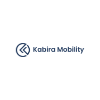Software Verification and Validation and System Testing for Model-Based Development
RELATED RECENT PLACEMENTS
Anupama Yeragudipati
Kabira Mobility
Gurunanak Khalsa College


Arun Kumar
Riverstone
Anna University

Paul Willington
DGS Technical Services Pvt. Ltd.
SAVEETHA SCHOOL OF ENGINEERING ,CHENNAI

IVIN TROY
Kabira Mobility
College of Engineering and Management,Punnapra

Karuthapandi K
DGS Technical Services Pvt. Ltd.
S. Veerasamy Chettiar college of engineering and technology

Gowsikraj M
Hyundai Motor India Ltd
Sri krishna college of technology


Mujahidoddin Saudagar
Hyundai Motor India Ltd
G.H Raisoni college of engineering and management Amravati


Krutika Ravikumar
Genpact
R.V.College of Engineering
Syllabus
This course is full of best-in-class content by leading faculty and industry experts in the form of videos and projects
Course Overview
- This course covers Embedded Software Verification and Validation Processes for Model-Based Development using MATLAB Simulink Toolchains.
- The students will gain a thorough knowledge of
- Model-Based Development V Cycle
- Industry Standard Design Verification and Validation Practices
- The students are exposed to the modern trends and standard practices being followed in the industry right now.
- Through this course, the students will learn to perform Software Verification, Validation, and System Testing for Model-Based Development in a systematic way.
Course Syllabus
On a daily basis we talk to companies in the likes of Tata Elxsi and Mahindra to fine tune our curriculum.
Week 1 - Role of MBD as per V Cycle and ASPICE Process Overview
- Introduction to Model-Based Development
- Overview of Software Development Lifecycle
- V Cycle in Automotive Embedded Software Development
- ASPICE Process Overview
- ASPICE Maturity Levels
- Stakeholders in Software Engineering Process Group
Week 2 - Japanese MATLAB Automotive Advisory Board (JMAAB)
- JMAAB:
- Style Guidelines Overview
- Guidelines for Model Configuration Parameters
- Guidelines for Model Architecture
- Guidelines for Naming Conventions
- Guidelines for Simulink Blocks
- Guidelines for Stateflow Blocks
Week 3 - Simulink Requirement Manager
- Understanding Software Requirements and Requirement Elicitation
- Introduction to Simulink Requirement Toolbox
- Converting Requirements into Model
- Requirement Tagging and Traceability in MATLAB Simulink Environment
- Requirement Management Offline
Week 4 - Fixed Point Toolbox in MATLAB Simulink
- Introduction to:
- Fixed-Point Data Types
- Floating-Point Data Types
- Range
- Precision
- Scaling
- Fixed Point Data Type
- Floating Point Data Type
- Defining Signal Range and Scaling Factor in MATLAB Simulink
- Introduction to Fixed Point Toolbox in MATLAB Simulink
Week 5 - Control Algorithm Development for TFT Cluster Display for Speedometer
- Requirement Elicitation using Requirement Manager Toolbox
- Model Development as per JMAAB Guidelines
- Signal and parameter Fixing using Fixed-Point Toolbox
- Model Advisor Check
Week 6 - Simulink Design Verifier Toolbox
- Introduction to Simulink Design Verifier Toolbox
- Introduction to Different Modes of Design Verifier
- Design Error Detection
- Introduction to Different Modes of Design Verifier
- Test Generation and Property Proving Methods
- Analyzing SLDV Results
- Dead Logic and Falsified Conditions
Week 7 - Introduction to Testing Theories and Coverage Analysis
- Difference Between Verification & Validation
- Types of Functional Testing:
- Unit Testing
- Functional Testing
- Integration Testing
- Types of Coverage and Coverage Analysis Report
- Functional Test Criteria Creation Process
Week 8 - Model in Loop Validation
- Introduction to Model in Loop Validation
- Analyzing Simulink Test Report
- Test Automation Creation and Test Coverage using Simulink Design Verifier
Week 9 - Polyspace Static Code Analysis
- Introduction to Polyspace Static Code Analysis
- Polyspace Bug Finder Overview
- Polyspace Code Prover Overview
- Functional Validation using Software in Loop
Week 10 - Simulink Test Manager Toolbox
- Introduction to Simulink Test Manager Toolbox
- Setting up Simulink
- Test File
- Test Suite
- Automating Test Reports Creation using Simulink Test Manager
- Baseline Testing and Back to Back Testing using Simulink Test Manager
Our courses have been designed by industry experts to help students achieve their dream careers
Industry Projects
Our projects are designed by experts in the industry to reflect industry standards. By working through our projects, Learners will gain a practical understanding of what they will take on at a larger-scale in the industry. In total, there are 2 Projects that are available in this program.
TFT Cluster Speedometer Display
Coolant Temperature Meter SWC Development
Our courses have been designed by industry experts to help students achieve their dream careers
Ratings & Reviews by Learners
Skill-Lync has received honest feedback from our learners around the globe.

Flexible Pricing
Talk to our career counsellors to get flexible payment options.
INR 40,000
Inclusive of all charges
Become job ready with our comprehensive industry focused curriculum for freshers & early career professionals
1 Year Accessto Skill-Lync’s Learning Management System (LMS)
Personalized Pageto showcase Projects & Certifications
Live Individual & Group Sessionsto resolve queries, Discuss Progress and Study Plans.
Personalized & Hands-OnSupport over Mail, Telephone for Query Resolution & Overall Learner Progress.
Job-Oriented Industry Relevant Curriculumavailable at your fingertips curated by Global Industry Experts along with Live Sessions.
Instructors profiles
Our courses are designed by leading academicians and experienced industry professionals.

1 industry expert
Our instructors are industry experts along with a passion to teach.

10 years in the experience range
Instructors with 10 years extensive industry experience.

Areas of expertise
- Autonomous Vehicle Controls
- Automotive Systems
- Automobile
Similar Courses
Got more questions?
Talk to our Team Directly
Please fill in your number & an expert from our team will call you shortly.
